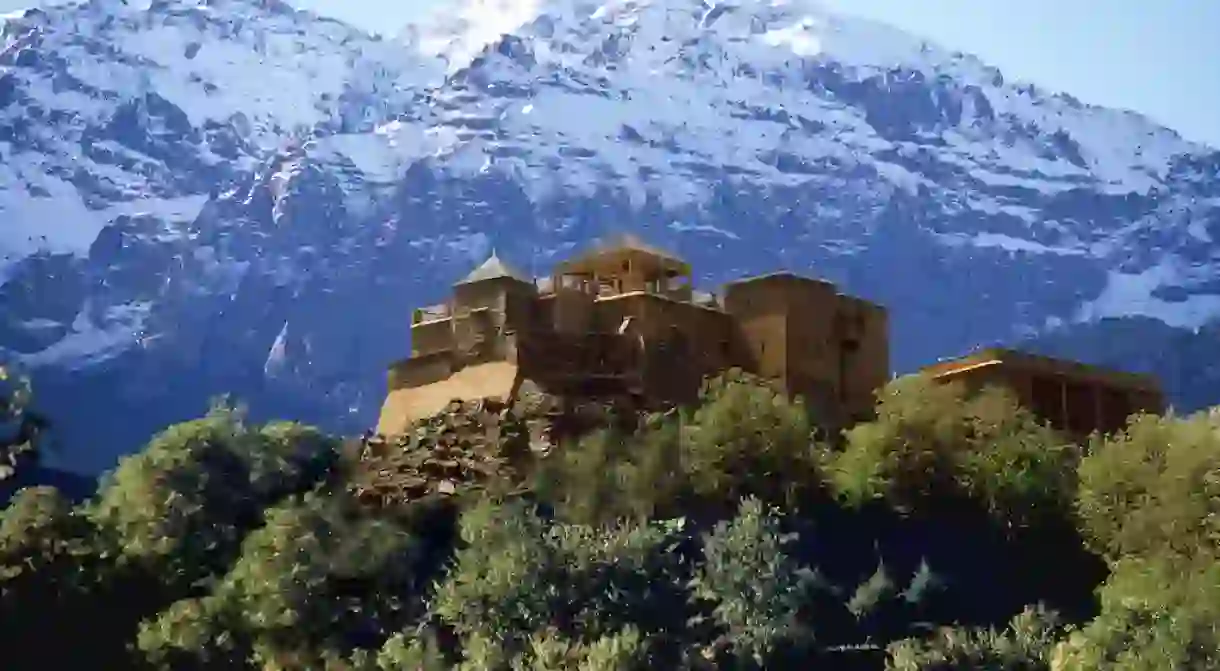6 Filmmakers That Can't Get Enough of Morocco

Over the years, Morocco has become known as an ideal destination in which to shoot spectacular movie sequences, and is a coveted location for many film directors and studios. From its unique architectural structures to its sprawling desert landscapes, the many faces of this country have made it a versatile participant in some of the world’s most famous blockbusters. Here are just six directors who chose to return to Morocco for their cinematic ventures time and time again.
Ridley Scott
“I would go back to Morocco in a flash,” British director Sir Ridley Scott told Condé Nast Traveler following the 73rd Golden Globe Awards in January 2016. He’s filmed more movies in Morocco than any other filmmaker, using the majestic fortified village of Ait Benhaddou to portray the ancient Roman colony Zucchabar in Gladiator (2000), the old streets of Rabat and Sale as the backdrop of scenes from Black Hawk Down (2001) and the town of Ouarzazate and its nearby CLA studios to film the Holy Land in Kingdom of Heaven (2005). His film Body of Lies (2008), which starred Leonardo DiCaprio and Russell Crowe, utilized the Moroccan Ministry of Economy and Finance in Rabat as a stand-in for Jordan’s secret service headquarters, and more recently Exodus: Gods and Kings (2014) was filmed in the middle of the Moroccan desert and mountains.
Paul Greengrass
Paul Greengrass has featured Morocco as backdrop for three of his films. The Bourne Ultimatum (2007) sees super-soldier Jason Bourne (Matt Damon) engaged in a high-speed chase through the streets of Tangier, trying to escape from the Moroccan police force. The Iraq war thriller Green Zone (2010) sees the city of Kenitra double up as the Iraqi town of Al Diwaniyah, while for Captain Phillips (2013), he chose the shoreline near Agadir and Sidi Bibi, a rural area in the province of Chtouka-Ait Baha, as two of the film’s various shooting locations.
Martin Scorsese
Martin Scorsese has a very special relationship with Morocco. “It is good to be home again,” he exclaimed back in 2013, when he was President of the Jury at the Marrakech International Film Festival. Scorsese’s The Last Temptation of Christ (1988), based on the controversial novel by Greek writer Nikos Kazantzakis, is shot entirely in Morocco, specifically, mostly in Meknes and other nearby cities. The director’s biopic of the 14th Dalai Lama’s s boyhood, (Kundun, 1997) saw the cities of Timlougite and Casablanca feature as the birthplace of the Dalai Lama and Mao Zedong’s headquarters respectively. Kasbah du Toubkal, a lodge on a hilltop in the High Atlas Mountains in Imlil, was also transformed into the Tibetan Dungkar Monastery.
André Téchiné
André Téchiné has filmed not one, but two films in Morocco. The French screenwriter and director has chosen the Moroccan city Tangier to shoot two of his films; Loin (2001) and Les temps qui changent (2004). Both allow viewers a glimpse into Moroccan culture and its people.
Stephen Sommers
American film director Stephen Sommers is well-known for his two action-adventure blockbusters; The Mummy (1999) and The Mummy Returns (2001)—both of which are filmed in Morocco. While the first utilized Marrakech as a double for Egyptian capital city Cairo, parts of the sequel were filmed in the High Atlas Mountains, along the spellbinding Todra Gorge canyons and the breathtaking Dades Valley.
Peter Flinth
Peter Flinth came to Morocco twice in two years in order to film two motion pictures adapted from Jan Guillou’s trilogy about Arn Magnusson, the fictional Swedish Knight Templar. Starring Joakim Nätterqvist and Sofia Helin, Arn – The Knight Templar (2007), is Sweden’s most expensive film production yet. Both it and its sequel, Arn – The Kingdom at Road’s End (2008), were filmed mainly in Sweden, but also utilized Morocco’s aesthetic landscapes.













